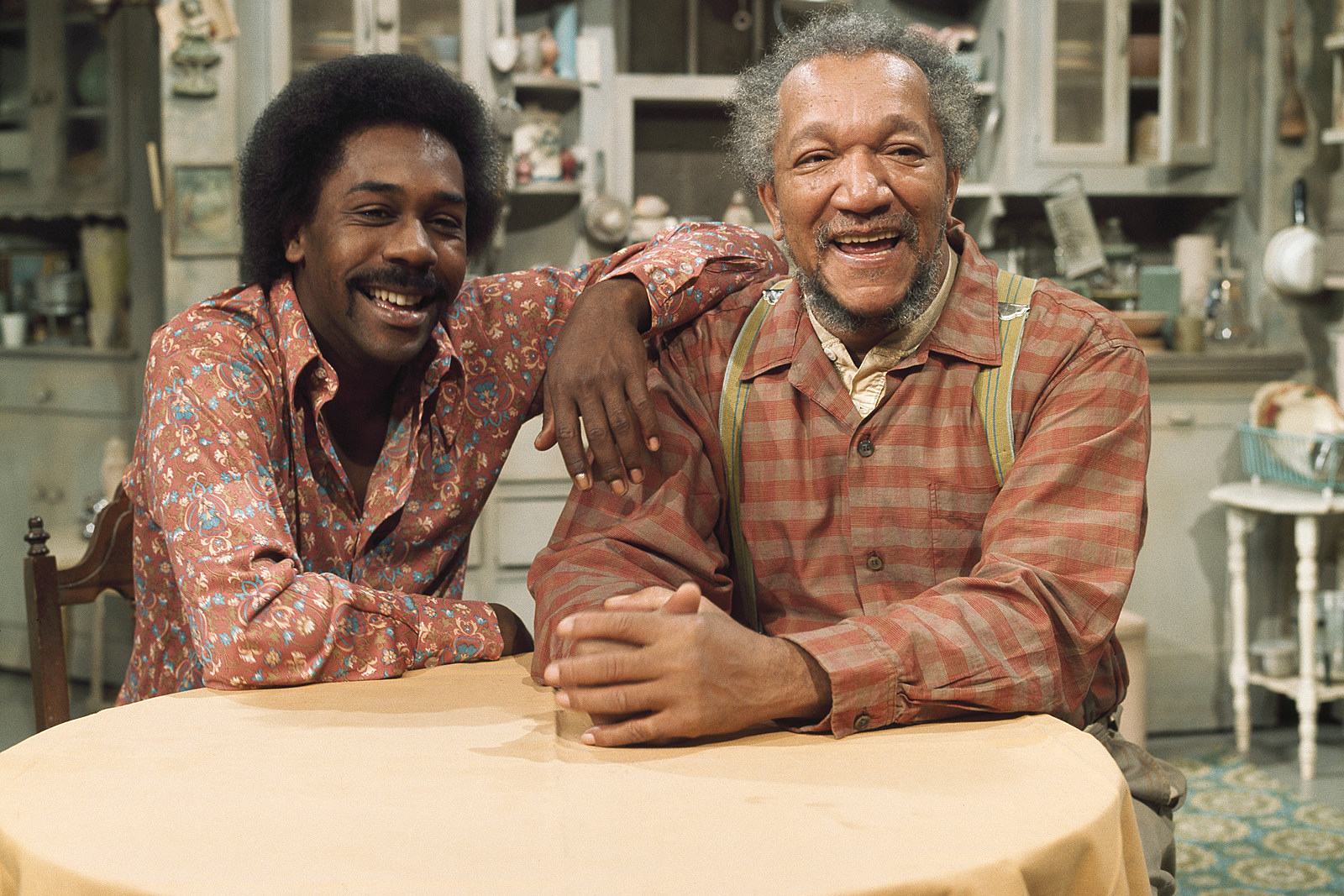
Nowadays, there are plenty of sitcoms on cable and streamers known for pushing the boundaries of comedy. From South Park to It’s Always Sunny in Philadelphia to Big Mouth to The Righteous Gemstones, edgy sitcoms have cemented their own place in the TV landscape with their sometimes salacious, sometimes contentiously pioneering jokes. But in the 20th century, the standards for decency were set on network television. Religious groups, parental organizations and even sitting presidents took issue with TV humor and weighed in on what was or wasn’t suitable for prime time.
Here are five shows that were considered to be very controversial in their time, all for different reasons…
1
All in the Family
In the 1950s and ‘60s, sitcoms were generally good, clean fun for the whole family, but the landscape changed considerably in 1971 with the debut of All in the Family. Unlike any other sitcom before it, All in the Family coupled smart writing with the biggest political issues of the day — especially those around race and racism. Archie Bunker (Carroll O’Connor) was an openly racist white man from Queens who effortlessly spouted bigoted terms that were widely used in American homes but rarely heard on television. Rather than ignore the issue of racism in America, All in the Family confronted it openly by letting Archie’s archaic attitudes be challenged by the liberal viewpoints of his daughter Gloria (Sally Struthers) and her boyfriend Michael (Rob Reiner). While other sitcoms may have used vulgar language for humor, All in the Family did it to affect social change.
2
Sanford and Son
Outside of starring in Sanford and Son, comedian Redd Foxx made extremely dirty comedy albums aimed at Black audiences, and while he was toned down for television, some of Foxx’s humor still slipped through. For one thing, the character of Fred Sanford held many bigoted viewpoints, particularly when it came to his distrust of white people. He would also hurl insults at every other character in the show on a near-continuous basis, pushing the boundaries of acceptable language on 1970s television.
3
I Dream of Jeannie
While very tame by today’s standards, I Dream of Jeannie received some flack in the very conservative 1960s for being more sexual than other TV shows, particularly when it came to Barbara Eden’s attire. Compared to every other woman on TV at the time, the character of Jeannie wore notably less clothing in her Jeannie outfit, which prompted NBC to force the show to cover up her belly button at all times. It was such a big issue that 60 years later, Barbara Eden, at age 93, is still getting asked about it. She told Entertainment Tonight last year that the controversy was “silly” and that “it became a thing. I’ve told people, I said, ‘Other people are known for very glamorous parts of their body — I’ve got a belly button.’”
Advertisement
4
Married… with Children
When Fox joined the airwaves in 1986 as a major network alongside ABC, NBC and CBS, it wanted to make a splash as a network that would push the envelope and its first major success in that area was the satirical sitcom Married… with Children. Whereas most sitcom families had loving bonds between them, the Bundys usually displayed outright contempt for each other, particularly between dead-inside husband Al Bundy (Ed O’Neill) and his ditzy, horny wife Peg (Katey Sagal). Particularly when it came to the subject of sex, Married… with Children openly challenged the television standards of the 1980s and ‘90s, which ultimately made the show a ratings hit and Fox a force to be reckoned with.
Advertisement
5
The Simpsons
Fox followed up Married… with Children with another series based on an American family: The Simpsons. While not nearly as sexually-charged as Married… with Children and starring family members who genuinely loved each other, The Simpsons was the first major animated adult sitcom since The Flintstones — and that alone helped it stand out in prime time. Also, between the anti-authoritarian antics of Bart and the stupid, drunken adventures of Homer, the show took more risks than most other series on TV at the time.
Because it was a cartoon, the show drew particular ire from puritanical parent groups who feared impressionable American children would emulate Bart’s juvenile delinquency. The show was so controversial it even drew criticism from the White House. First Lady Barbara Bush called it “the dumbest thing I had ever seen,” in an interview with People. Then her husband, the President of the United States, was so irked by Bart’s antics that he said, “We’re going to keep trying to strengthen the American family. To make them more like the Waltons and less like the Simpsons.”
Of course, The Simpsons would get the ultimate revenge in the episode “Two Bad Neighbors,” when the ex-president moves to Springfield and Homer proceeds to drive him absolutely crazy.
